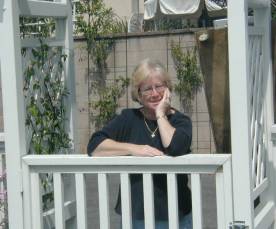OCLC Workshop on Preserving Born-Digital Collections (with Gail Palmer/OCLC)
Course description: As more and more content is created and maintained in digital formats, it is important to begin thinking about what to preserve and how to preserve it. This workshop focuses on the issues of selecting an appropriate preservation strategy for born digital material, the key issues in maintaining materials in a digital format, and the use of national digital archive prototypes and other preservation options. (from OCLC training course description)
What you will learn: Understanding of the concepts of content, context, structure, reliability and authenticity of digital material and how they relate to preservation; Understanding of the available options for preservation of born digital material; and Ability to make appropriate preservation decisions for born digital material. (from OCLC training course description)
This training course workshop addressed the basic requirements of a digital preservation program including issues relating to content, structure, reliability, authenticity, access, and rights management. While all of these elements were discussed in detail, the overarching element that I took away from this workshop was the need for "bringing people along in the process," policies, planning and resource development to sustain this initiative. Gail focused on the need to determine the "organizational readiness", the technological infrastructure that forms the foundation of any venture, and then finally the resources framework for sustainability.
As I introduce this agenda for my campus, I need to determine if it is a concern for PCC. Are there elements already documented in the planing processes (program, unit and area plans; technology master plan,, educational master plan) that can provide the springboard for further explanation. The campus survey that I developed for release in January will identify some of the resources as well as the concerns for a project. The Technology Master Plan can also integrate Technology Survey (Spring 2006) findings into the new revisions.
There are some models "ripe" for integration into a demonstration project:
•Richshell Allen's "born-digital" photographs
•Library historical photographs (already digitized)
•PCC historical photographs in the Library archives (already scanned)
•Oral histories (to be converted to digital media from audiotape)
•PCC Couriers (microfilmed; ready for digitization if funding is available)
•PCC Courier files (original film, contact sheets for each issue of the Courier/files moved to the PCC Library Archives and are waiting for an inventory)
•PCC Artist in Residence resources (B role tape)
•PCC Biography articles file (to be digitized and loaded into Contentdm)
Sites to explore (or revisit):
Cornell's Digital Preservation Tutorial">Cornell's Digital Preservation Tutorial
http://www.library.cornell.edu/iris/tutorial/dpm/
Handbook for Digital Projects: A Management Tool for Preservation and Access 1st ed. Maxine K. Sitts, Editor. Northeast Document Conservation Center. Andover, Mass, 2000.
http://www.nedcc.org/oldnedccsite/digital/dighome.htm
Western States Dublin Core Metadata Best Practices Updated Fall 2006!
http://www.cdpheritage.org/cdp/documents/CDPDCMBP.pdf
Library of Congress Metadata Encoding and Transmission Standard (METS)
http://www.loc.gov/standards/mets/METSOverview.html
Funding resources (on Gail's bibliography)including IMLS, NEA, NEH, NHPRC as well as other preservation organizations and funding: http://www.oclc.org/digitalpreservation/resources/funding.htm


0 Comments:
Post a Comment
<< Home